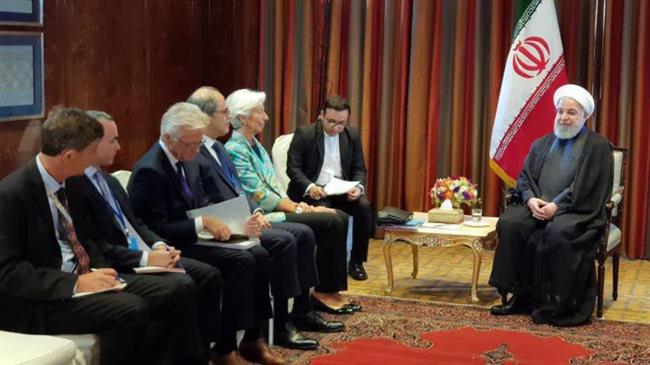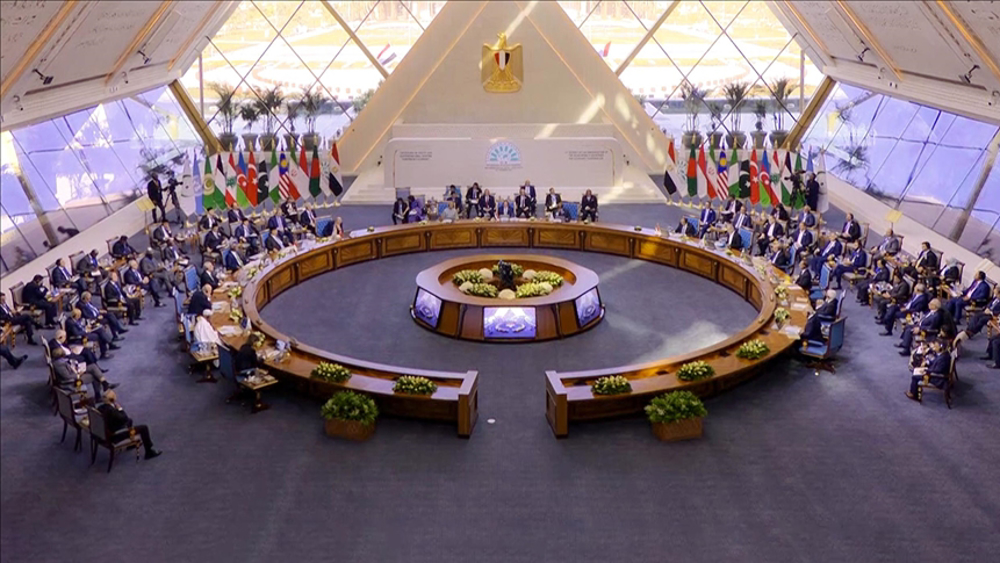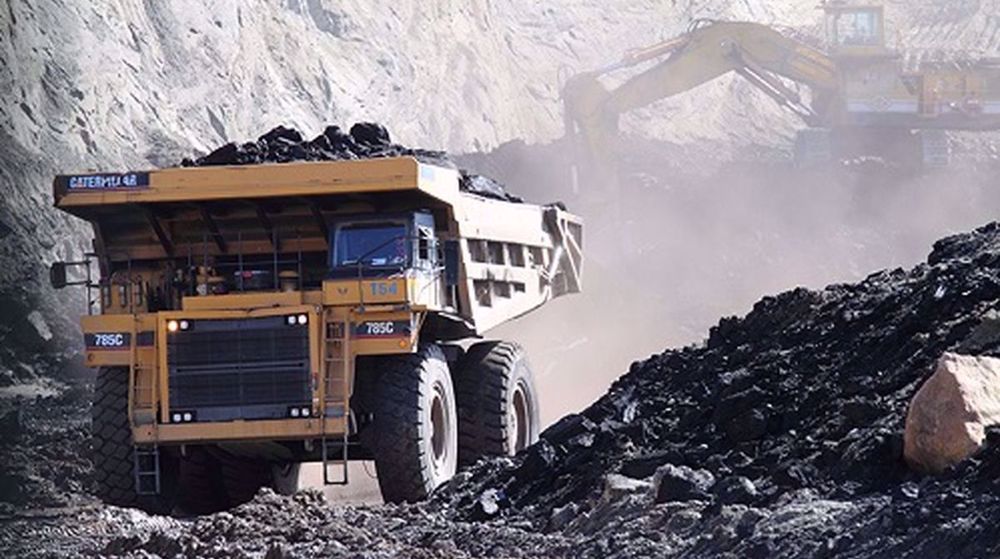Rouhani presses IMF’s Lagarde to back Iran against US
Managing Director of the International Monetary Fund (IMF) Christine Lagarde says she met President Hassan Rouhani in New York Monday and discussed economic challenges facing Iran.
They “discussed global developments and economic challenges facing Iran, as well as the key reform priorities needed to safeguard macroeconomic stability at this time,” Lagarde said.
According to the official website of Iran’s presidency, Rouhani told Lagarde that Tehran is willing to deepen its relations with financial institutions, especially the IMF, and benefit from the fund’s advice.
Rouhani described US sanctions against Iran as “illegal and contrary to international laws and stressed the need for international financial institutions to support Tehran against this illegal US action,” it said.
The Iranian president stressed that IMF’s primary responsibility is to protect its members against unlawful invasions and banking and monetary sanctions.
“The IMF should demonstrate that it can play its part in the economic stability of a member, and I hope that it can take a positive step in this regard,” Rouhani said, according to the website.
Iran is facing challenges for access to the global financial system under new sanctions imposed by the US which withdrew from an international nuclear deal with the Islamic Republic in May.
US banks are forbidden to do business with Iran. Lenders based elsewhere also eschew dealing with the country because unilateral American rules prohibit transactions in dollars from being processed through the US financial system.
The International Monetary Fund along with the World Bank and the Financial Action Task Force (FATF) assesses countries’ compliance with recommendations to combat money laundering and financing terrorism.
The inter-governmental organization FATF has identified Iran as a country that poses a risk to the international financial system, giving it until October to address nine action items or face blacklisting and counter-measures.
To fulfill FATF requirements, Rouhani’s administration has proposed four bills to the parliament for approval, two of which are still undecided, including the Palermo Convention.
Iran’s oversight Guardian Council rejected the Palermo Convention in August because it was inconsistent with the country’s constitution.
Opponents of FATF say its approval could entangle the country in endless disputes followed by international sanctions.
Leader of the Islamic Revolution Ayatollah Seyyed Ali Khamenei said in June that the Palermo Convention is "cooked up" by foreign powers. He proposed that the Iranian parliament create its own laws to combat money laundering and the funding of terrorism.
The Europeans are pressuring Iran to join FATF, saying that its banking system could become thoroughly isolated from the global financial system if it did not.
However, European banks and financial institutions are already refraining from processing Iran-related transactions in spite of their governments which are apparently exhorting them to maintain trade with the Islamic Republic.
On Monday, it was reported that France’s state-owned bank Bpifrance had abandoned its plan to set up a mechanism to aid French companies trading with Iran.
Bpifrance’s Chief Executive Nicolas Dufourcq said the lender had put on hold a project to finance French companies that wished to export goods to Iran despite US sanctions.
The plan was to establish euro-denominated export guarantees to Iranian buyers of French goods and services and avoid the extraterritorial reach of US legislation by structuring the financing through vehicles without any US link.
Swiss oil trader Vitol also said Tuesday it will stop doing business with Iran after the United States reimposes sanctions on Tehran’s oil trade from Nov. 4.
Senior executive Mike Muller, however, said the commodity merchant looked forward to returning to Iran when problems are sorted out.
“We have a longstanding relationship with Iran and clearly I look forward to when trade can be resumed, but for now, one needs explicit waivers from the US, and not just the US but the global banking community and everything else,” he was quoted as saying in Singapore.
A spokesman for AB Volvo said the Swedish truckmaker had stopped assembling trucks in Iran because US sanctions are preventing it from being paid.
“With all these sanctions and everything that the United States put in place, the bank system doesn’t work in Iran. We can’t get paid. So for now we don’t have any business in Iran,” Reuters quoted Volvo spokesman Fredrik Ivarsson as saying.
Ayatollah Khamenei said last month that Iranian officials should stop pinning their hopes on Europe to save the international nuclear deal.
“There is no problem with continuing relations and negotiations with Europe, but hope should be abandoned regarding matters such as the nuclear deal,” he said in a meeting with President Rouhani and members of his cabinet.
Ayatollah Khamenei is the champion of a resistive economy which seeks to counter sanctions through increasing the country’s resilience to outside pressures by boosting domestic production.
‘All wars have rules. All of those rules have been broken’ by Israel
VIDEO | Report flags India’s violation of rights of Rohingya detainees
Turkey's foreign minister meets Syria's de facto leader in Damascus
'Next to impossible' to rescue patients from Gaza's Kamal Adwan Hospital: Director
VIDEO | Vietnam current prosperity
Report blames gasoil exports for shortage at Iranian power plants
VIDEO | Hind Rajab Foundation names Israeli war criminals vacationing after Gaza genocide
VIDEO | Australians rally for Gaza ahead of Christmas festivities












 This makes it easy to access the Press TV website
This makes it easy to access the Press TV website